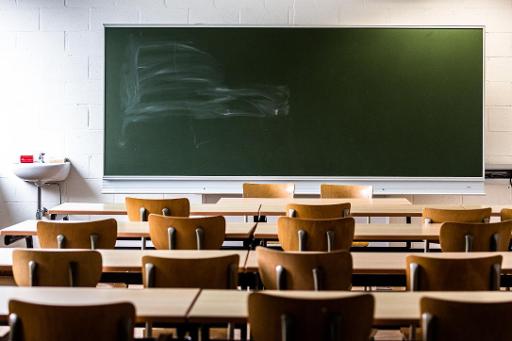Some educators are refusing to implement a decree requiring them to make “reasonable adjustments” for children with special needs to pursue their education in ordinary schools, an association representing parents of special-needs children charged on Tuesday.
“There isn’t a week that passes without parents calling us to say 'We’ve been refused reasonable adjustments’,” said Bernard Hubien, secretary-general of the Union francophone des associations de parents de l'enseignement catholique (UFAPEC), an umbrella of parents’ associations in Catholic Schools.
Under a September 2018 decree, schools are required to make “reasonable adjustments” enabling students with special needs – due to a handicap or a learning disability, for example - to be educated in their establishments.
The association cited the example of Alice, a teenage girl suffering from learning disabilities and attention deficit since childhood. Thanks to a personal computer in class, she was able to complete her primary education and even graduated from primary school with honours.
Wishing to pursue her education in an ordinary secondary school, she asked to be allowed to keep her computer in class, have her teachers give her her marks on a flash drive, and be allowed to do her classwork and homework on her computer, rather than by hand.
However, her wish was not granted. “It was unilaterally decided by the teaching staff that she could only use her computer for three subjects,” UFAPEC said.
Her learning habits were disrupted and she was forced to work mainly on paper rather than digitally. Alice soon fell behind and ended up changing schools.
According to the Union, to avoid this type of resistance by teachers and give special-needs children a fighting chance, a minimum of 90-course hours on teaching children with special requirements need to be built into the basic teacher-training programme. Further, training on the use of digital tools for special-needs children needs to be organised in schools and, where necessary, teachers must be required to produce their course notes and assessments in digital format.
The UFAPEC is calling for the installation of the Compulsory Education Commission created within the administration of the Francophone Federation under a 2017 decree. This commission’s purview includes ruling on complaints parents may lodge if schools refuse to make reasonable adjustments for their children.
The decree, which is in application since September 2018, is aimed at keeping special needs children as much as possible in ordinary education rather than forcing them to attend specialised education.
The arrangements thus determined must be made “in the shortest time possible”. However, they may be refused if they are “disproportionate” measures, particularly in terms of financial cost, if their organisational impact on the school is excessive or if they have a negative impact on the quality of life of the other users.
The Brussels Times

